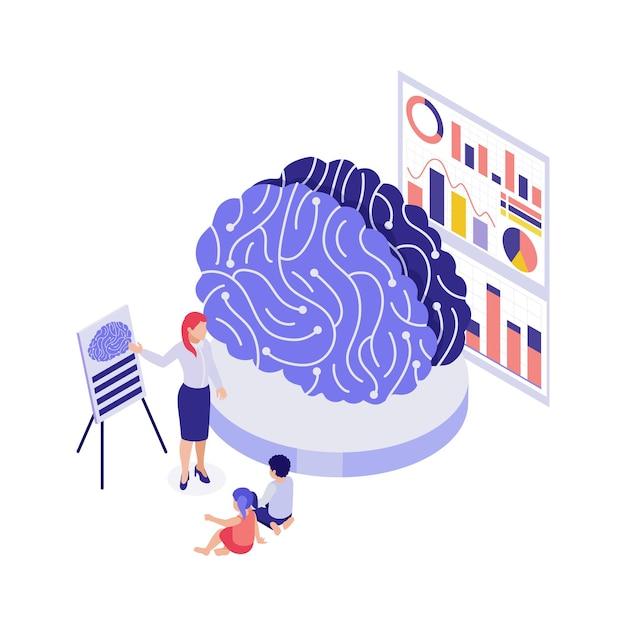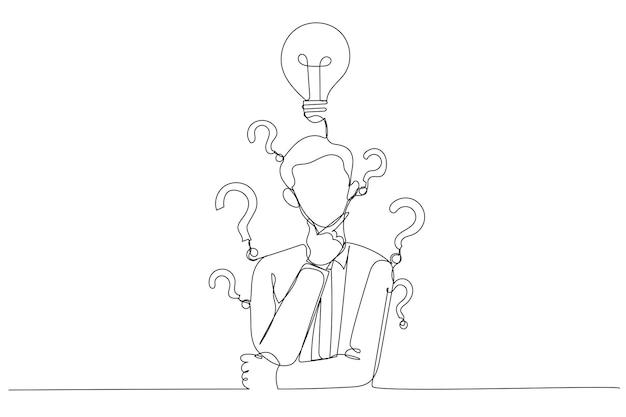Imagine this scenario: You’re trying to learn a new language, and you come across a difficult word. Instead of memorizing it, you pause and think about its meaning, break it down into smaller parts, and relate it to something you already know. This process you’re going through is called cognition, and it plays a crucial role in how we learn and acquire knowledge.
In simple terms, cognition refers to the mental processes involved in acquiring, processing, storing, and retrieving information. It encompasses a wide range of activities such as perception, attention, memory, problem-solving, and language comprehension. By understanding how cognition works, we can gain insights into how we learn, think, and solve problems.
In this blog post, we will delve into the cognitive learning theory and explore its major emphasis on the role of mental processes in learning. We’ll examine the elements of cognition, demonstrate examples of cognitive learning in action, and unravel the functions of concepts. So grab a cup of coffee, sit back, and let’s embark on this journey to unravel the mysteries of our cognitive learning abilities.

What the Cognitive Learning Theory Emphasizes
The cognitive learning theory is a powerful tool that sheds light on how individuals process and interpret information. Rather than solely focusing on external stimuli, this theory places great importance on the internal mental processes that occur during learning. So, what exactly does the cognitive learning theory emphasize? Let’s dive in and find out!
Understanding the Inner Workings of the Mind
At its core, the cognitive learning theory emphasizes the idea that learning is an active process that takes place within the mind. It acknowledges that learners are not passive recipients of information but rather engage in complex mental processes to comprehend and retain knowledge.
Thoughts, Memories, and Problem-Solving
One of the key aspects that the cognitive learning theory emphasizes is the role of thoughts in the learning process. It recognizes that learners actively think about, analyze, and evaluate new information, making connections with their prior knowledge and experiences. This internal cognitive activity influences how individuals interpret and process new information.
Memories also play a significant role in cognitive learning. The theory emphasizes that learners store and retrieve information based on their existing mental frameworks, known as schemas. These schemas act as mental maps, guiding individuals in making sense of new information by fitting it into their existing knowledge structures.
Problem-solving is another area that the cognitive learning theory hones in on. It highlights how learners use their cognitive abilities to analyze and solve problems. It emphasizes the importance of metacognition, which is thinking about one’s own thinking. By employing strategies such as planning, monitoring, and evaluating, learners can effectively tackle challenges and find solutions.
Individual Differences and Learning Styles
The cognitive learning theory recognizes that every individual is unique and has their own way of processing and organizing information. It emphasizes the fact that people have different learning styles and preferences. Some may be visual learners who grasp concepts better through images and graphics, while others may be auditory learners who benefit from listening to lectures or discussions.
By recognizing and accommodating individual differences and learning styles, educators and learners alike can optimize the learning experience. This theory encourages the use of various instructional strategies and materials to cater to diverse learning preferences, ensuring that information is presented in a manner that aligns with the learner’s cognitive processes.
The Power of Reflection and Feedback
In the cognitive learning theory, reflection and feedback hold immense significance. It recognizes that learners benefit from reflecting on their own learning experiences and receiving constructive feedback. Reflection allows learners to identify what they understand well and areas where they might be struggling, enabling them to make adjustments and improve their understanding.
Feedback, whether from teachers, peers, or self-assessment, provides learners with valuable information about their progress and areas for improvement. It helps individuals identify gaps in their understanding, correct misconceptions, and refine their cognitive processes. By embracing reflection and feedback, learners can enhance their metacognitive abilities and become more effective learners.
Applying Cognitive Learning Theory in Education
The cognitive learning theory has had a profound impact on education. It has paved the way for learner-centered approaches that prioritize active engagement, critical thinking, and problem-solving. Teachers now design instructional activities that promote deep understanding, encourage reflection, and capitalize on individual strengths and learning styles.
By understanding what the cognitive learning theory emphasizes, educators can create learning environments that foster cognitive growth and mastery. They can implement strategies such as scaffolding, which provides support and guidance tailored to learners’ needs, promoting successful acquisition of knowledge and skills.
In a nutshell, the cognitive learning theory emphasizes the active, internal mental processes occurring during learning. It highlights the importance of thoughts, memories, problem-solving, individual differences, reflection, and feedback. By embracing these principles, educators can unlock the full potential of learners, ensuring they acquire knowledge, develop critical thinking skills, and become lifelong learners.

FAQ: What does the cognitive learning theory emphasize?
In the fascinating world of learning and cognition, the cognitive learning theory takes center stage. Developed by psychologists like Jean Piaget and Lev Vygotsky, this theory explores how our mind processes information, constructs knowledge, and influeces our behavior. Let’s dig deeper into some frequently asked questions about the cognitive learning theory.
What is cognition in simple terms
Cognition, in simple terms, refers to the mental processes involved in acquiring, organizing, understanding, and using knowledge. It’s the way our brains process information, think, learn, remember, and perceive the world around us. So, the next time you ponder over a problem, have a vivid memory, or come up with a creative solution, give credit to your wonderful cognitive abilities!
What is an example of cognition
Imagine this: you’re driving down the road and suddenly spot your favorite ice cream shop. Without conscious effort, your brain kicks into gear, retrieving memories of the tantalizing flavors and textures. These mental processes of perception, attention, memory, and decision-making that help you recognize, remember, and ultimately decide to stop for a scrumptious cone are all examples of cognition in action.
What are the elements of cognition
Cognition is like a symphony playing in your brain, composed of various elements working harmoniously to shape your thoughts and actions. These elements include perception, attention, memory, language, problem-solving, and decision-making. Each element plays its unique part in the grand orchestra of cognition, allowing you to navigate the world and tackle life’s challenges.
What does the cognitive learning theory emphasize
Ah, the cognitive learning theory, one of the stars of the show! This theory emphasizes that learning is an active process where learners actively construct knowledge by mentally engaging with information. Forget about passive absorption of facts; with cognitive learning, it’s all about hands-on thinking, analyzing, interpreting, and making connections. So, get ready to roll up your mental sleeves and dive into the exciting world of active learning!
What is the major emphasis of cognitive learning
The major emphasis of cognitive learning is on mental processes, such as perception, attention, memory, and problem-solving. Unlike other theories that focus on external factors like rewards or punishments, cognitive learning recognizes that our minds are the key players in the learning process. By understanding how our thoughts and memories shape our learning experiences, we can develop effective strategies to enhance our learning and understanding of the world.
What is cognition and what are the functions of concepts
Cognition is the mental wizardry that allows us to make sense of the world, but what about concepts? Well, concepts are like little cognitive building blocks that help us categorize, understand, and communicate about the things we encounter. They create mental shortcuts and enable us to group similar objects, ideas, or experiences together. So, the next time you effortlessly categorize your vast collection of cute cat videos, remember that concepts are doing their job behind the scenes.
What are the 6 types of cognitive processes
Prepare yourself, for the cognitive processes parade is about to begin! Here are six types of cognitive processes that make up the fascinating inner workings of our minds:
1. Perception
Perception is like a magician’s trick, as it involves interpreting and making sense of sensory information, such as what we see, hear, taste, touch, and smell. It’s the way we bring the world into our consciousness, transforming raw data into meaningful experiences.
2. Attention
Attention is the spotlight of cognition. It determines what information gets the VIP treatment in our minds. Whether we focus on a captivating lecture or a captivating cat video, attention directs our mental spotlight, allowing us to engage with specific stimuli.
3. Memory
Memory is the resident librarian in our brain. It stores and retrieves information, letting us revisit past encounters, learn from our mistakes, and create a sense of personal identity. From remembering lyrics to your favorite ’90s hit to recalling how to ride a bike, memory plays a crucial role in our daily lives.
4. Language
Language is the symphony of communication. It allows us to express thoughts, share experiences, and connect with others. Whether spoken, written, or signed, language provides a platform for exchanging ideas and understanding the world together.
5. Problem-Solving
Problem-solving is the intellectual gymnastics routine of cognition. It involves identifying obstacles, generating creative solutions, and making informed decisions. From unraveling a mind-boggling riddle to figuring out the best route home, our problem-solving skills help us navigate through life’s challenges.
6. Decision-Making
Decision-making is the courtroom drama of cognition. It involves weighing options, evaluating consequences, and selecting the best course of action. From choosing the perfect topping for your pizza to deciding on a career path, decision-making influences the trajectory of our lives.
There you have it, a comprehensive FAQ-style guide shedding light on the cognitive learning theory and its fascinating facets. Now, armed with knowledge about cognition, go forth and unlock the potential of your magnificent mind!
